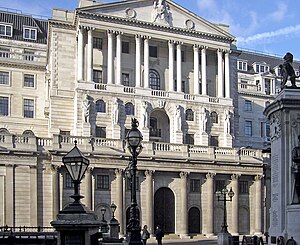The story last night of the 9 month old twins being attacked by a fox while they were sleeping in their cot in their home in Hackney sent shivers down my spine.
Once my spine had stopped shivering, my next reaction was to think about the impact such a story will have on the image of foxes, particularly the urban variety.
Some of us, me in particular, regard the urban fox as one of life's annoyances. Some of them live in the communal gardens near our house. I've seen them running down the road, bold as brass, playing with each other and I have scooped up the contents of our shredded bin bags outside our front door - as well as enjoyed the smell of their urine on the door step. For me, foxes belong in the countryside where they can be trapped, shot or even accidentally hunted by dogs. But this is not a post about hunting.
Other people take a different view and see a handsome animal charmingly bringing a hint of the countryside to their city. They leave food out in their gardens and delight in how close they dare come to humans. They are almost like pets.
I accept that such people would make the perfectly valid assertion that an attack by a fox on humans - even very small ones -
is so rare it is virtually unheard of. More people are attacked - and children killed or maimed - by domestic dogs - or for that matter their own parents, step parents, foster carers and other assorted random nutters in a single year than the total record for fox attacks (I assume).
The reaction I was not expecting was one of complete denial. However, if you visit the
home page of the Save-me campaign (sponsored by
Brian May, the guitarist off
Queen), this is what you will find. Brian's
first post to the campaign's facebook page read
"Fox attacks babies ? Sure ! And monkeys will fly ...... out of my butt. Ha ha. And I suppose there is proof ? !!! What a piece of work is Man. love Bri".
As of now, 238 people "liked" this note and 241 commented. Once Brian had established that there was in fact proof he wrote a more
"serious" note which started:
"Well, I don't have enough information to know whether this is an attempt by somebody to turn people against foxes, or not."
This note opened the floodgates to a further 213 comments ("likes" down to 126) many of which were sceptical about the truth of the original story on the basis that foxes simply
DO NOT attack humans.
Of course, this reaction of denial would be no less irrational than calls for a massacre of urban foxes on the grounds that they are a danger to small babies.
But by nature we are irrational when faced with freakish events. Some find solace in conspiracy theories which allow them to pretend that the event in question has a different cause with which they can cope more easily. Others call for drastic action to ensure that the incredibly rare event can never happen again. These calls are often irresistably populist and end up in bad legislation - or in the case of 9/11 - war.
With this in mind, I had some sympathy for the
senior policeman defending the actions of his unarmed officers who were in contact with Derrick Bird while he was rampaging around Cumbria, but were unable to stop him. Like he said, these were "
exceptional circumstances" and sometimes it is impossible to draw any lessons.
So, it would be irrational to view foxes as any less cuddly following this incident. Brian May, on the other hand....


![Reblog this post [with Zemanta]](http://img.zemanta.com/reblog_e.png?x-id=39905c76-7ed9-45ed-92d2-71a9af5d4282)

![Reblog this post [with Zemanta]](http://img.zemanta.com/reblog_e.png?x-id=a82a6c07-57a6-4582-944a-e5ca8707f728)
